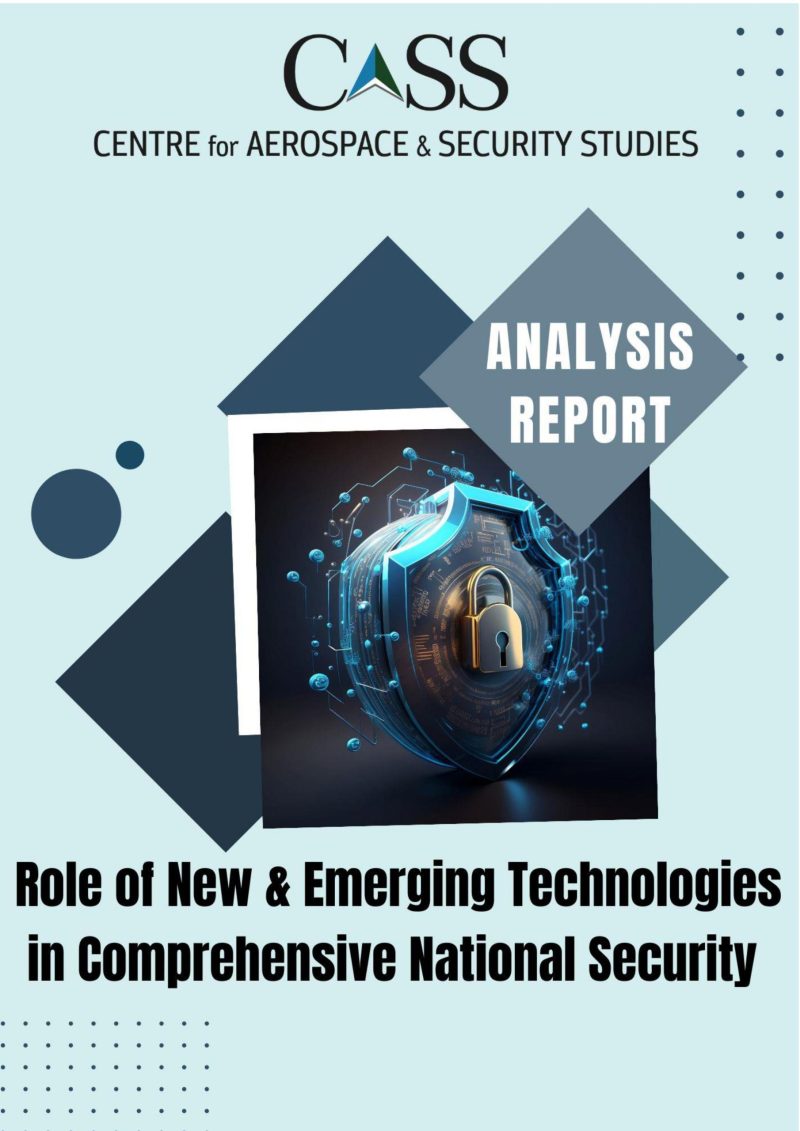The concept of ‘Comprehensive National Security’, expands the traditional view of national security to include internal and external affairs of the state and society. It encompasses both traditional military security and non-traditional dimensions of human security. Pakistan’s first formally declared ‘National Security Policy’ is based on this concept, emphasising a whole-of-nation approach to develop a cohesive and responsive security policy.
Emerging technologies such as Internet of Things (IoT), Artificial Intelligence (AI), 3D printing, Quantum Computing, 5G, block chain, autonomous systems, robotics, hypersonic missiles, and biotechnology are rapidly transforming societies, economies, as well as warfighting capabilities leading to a shift in global power centres. These technologies have implications for both human security and state security, requiring a futuristic approach.
Technological advancements driven by the digital revolution are revolutionising various fields by gathering, analysing and utilising vast amounts of data. They offer numerous social and economic benefits, enhancing productivity in sectors such as health, energy, finance, education, agriculture, and environment. In the realm of traditional security, these advancements lead to the development of new weapons, integration of existing systems, and changes in operational concepts and organisations. Acquiring these technologies will impact power balances and create challenges at national, regional, and global levels.
In this regard, on 8 June 2023, the Centre for Aerospace & Security Studies (CASS) organised a seminar on the subject of ‘Role of New & Emerging Technologies in Comprehensive National Security.’ The aim of the seminar was to examine the formulation of policies and implementation strategies for investing in the development of newer technologies to achieve Pakistan’s Comprehensive National Security goals.

Beyond Autopilot: Unmanned Systems and their Dual Use Potential
Unmanned systems, driven by rapid technological advancements, have become pivotal not only in the military domain but in civilian arenas also because of their dual nature. So far, most of the available literature looks at the military utility of unmanned systems only. However, this article sheds light on the usefulness of
12 views

How Vulnerable is the Aviation Industry to Cybersecurity Risks?
The aviation industry has embraced widespread digitalisation over the past decade to improve passenger experience and operational efficiency. However, according to the UN’s International Civil Aviation Organisation (ICAO), this advancement has exposed the industry to increasing cyber-attacks. Notably, a major cyber-attack against a global IT supplier in February 2021 underscored
33 views

Daniel McDowell, Bucking the Buck
Daniel McDowell’s book Bucking the Buck: US Financial Sanctions and the International Backlash against the Dollar is a notable addition to the literature on the de-dollarisation trend and its underlying motives. In it, McDowell critically analyses the influence of the overuse of economic sanctions by the United States (US)
44 views

© 2022 CASSTT ALL RIGHTS RESERVED
Developed By Team CASSTT
Contact CASS
CASS (Centre for Aerospace & Security Studies), Old Airport Road, Islamabad
+92 51 5405011
cass.thinkers@casstt.com
career@casstt.com
All views and opinions expressed or implied are those of the authors/speakers/internal and external scholars and should not be construed as carrying the official sanction of CASS.
